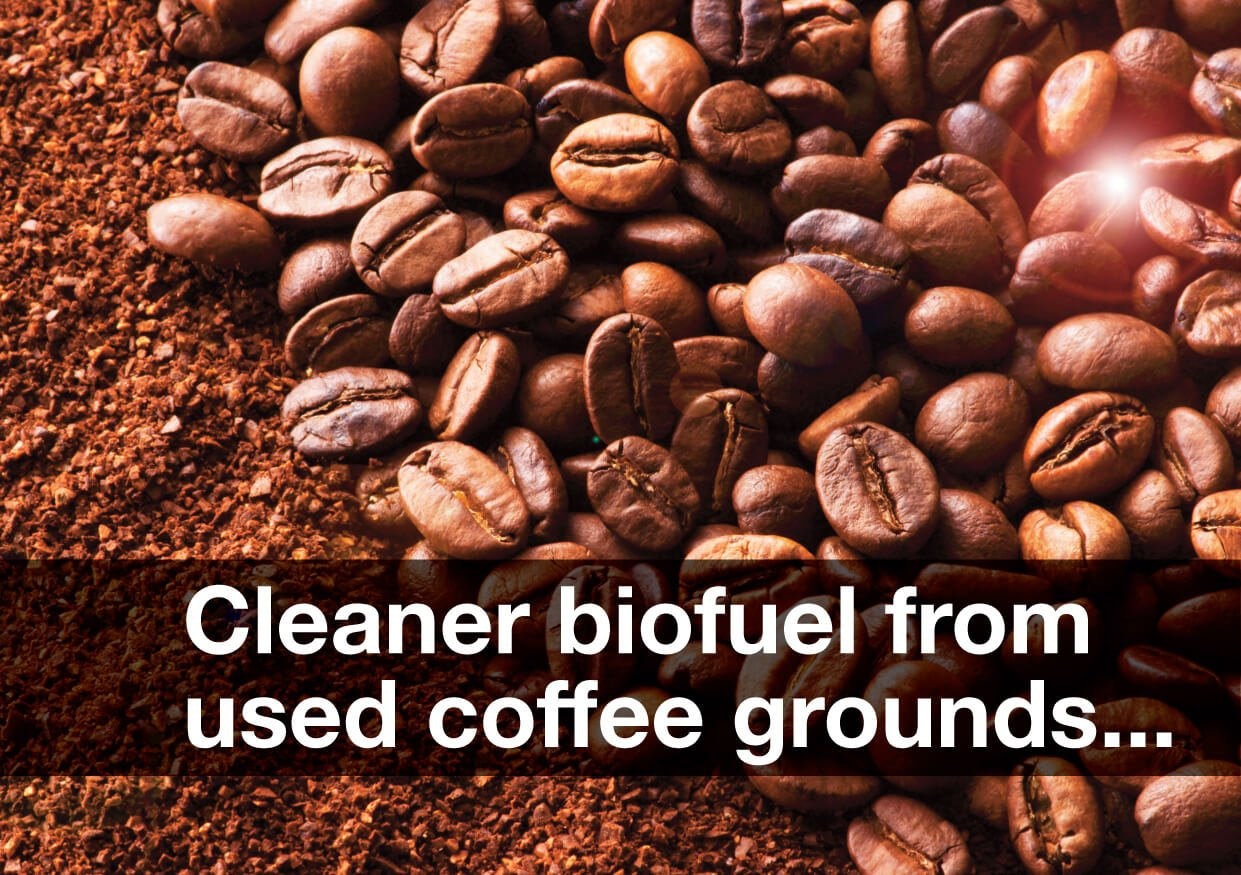Cleaner Biofuel from Used Coffee Grounds
The coffee industry is, arguably, one of the most waste producing sectors out there.
From millions of cups thrown away daily to coffee beans ending up in the bin instead of recycling, the coffee market has made considerable efforts to reduce waste and capitalise on green opportunities. Its efforts have not been overlooked by others, which has led to innovation in raw biofuel material.
The production of biofuels, which are an alternative to conventional fossil fuels, is becoming somewhat of a favourite among young businesses that value sustainability. Whilst the market popularity is not a problem for biofuels, there are some challenges in production: the oils necessary for manufacture are extracted from purpose-grown feedstocks that are often expensive to grow and put a strain on the abundance of land and water resources they require. An alternative for this is feedstock based on used coffee grounds.
Used coffee grounds make a good feedstock, not only because of their rich calorific value but also because of their availability: many coffee chains provide them for free, and in 2014 over 9 billion kilograms of them were thrown into a landfill worldwide. The theory of utilising used coffee grounds to help produce biofuels has been on the surface for some time, but only now is it becoming a viable reality. For example, researchers from Lancaster University have managed to transform the not-very-feasible process into one single step: where previously the grounds had to be mixed with hexane and cooked to evaporate it before oil extraction could take place, the new procedure allows manufacturers to add methanol and a catalyst straight away for the coffee to yield the needed oils. This not only saves time but reduces the waste that accumulates as a by-product and means no electricity is needed for the cooking process.
The researchers predict that this technique alone, would allow 720 tonnes of biodiesel to be produced annually. Such a figure could significantly contribute to the green energy industry of the world and strengthen cooperation with new industries. In our opinion, this idea is unlike any other green energy initiative so far. To sustain our way of living, recycling is an essential process and using coffee grounds that would otherwise go to waste is an effective tool for advancing biofuels.
